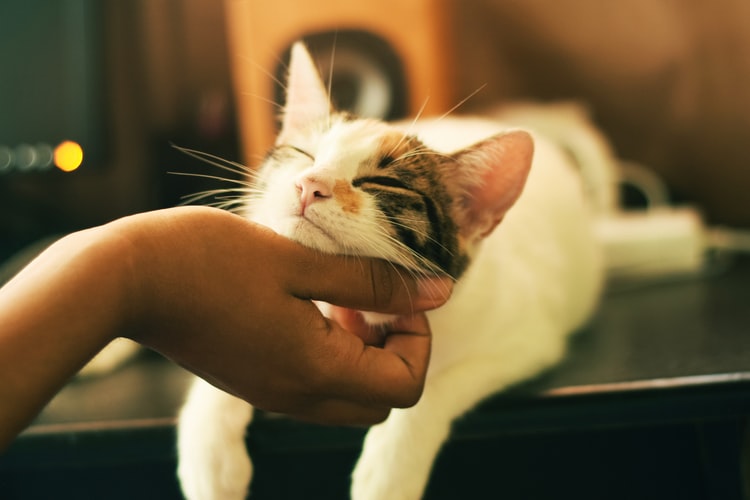There are many reasons that somebody may consider getting a pet. Mostly, it is because a furry or scaly critter in your home will simply make you happier. After all, how could you not smile at a puppy running in circles after its own tail, a fish making funny faces towards you, or an adorable hamster with a ridiculous amount of snacks filling its cheeks?
The effect that animals have on us may make you wonder if it goes beyond pets bringing a little more joy into our lives. Could they actually improve our mental health?
The Mental Health Benefits of Pets
Yes, not only is having a pet an absolutely delightful experience, pets also bring a whole host of mental health benefits into our lives. Studies have shown vast improvements in the lives of individuals after they have become pet owners. While having a pet isn’t a quick fix for mental health conditions, it can help to alleviate the symptoms. Interacting with a pet, especially a dog or cat, benefits those struggling with various mental health conditions, including depression, anxiety, and ADHD.
How a Pet Can Help With Depression

The wag of a dog’s tail or the soothing purr of a cat under your palm can really brighten our moods. Pet owners just aren’t depressed as often as those without a pet. There are multiple factors of pet ownership that help to fight the symptoms of depression. Beyond just making us smile with their unconditional love, a pet could give you a reason to get out of bed and encourage you to get moving and find someone to talk to, even if that’s their own curious ears.
When you’re depressed, there isn’t much that can cheer you up. You can’t just “get over” the serious feelings of depression by stroking a pup’s fur. But it can help. Even just watching fish swim in a tank can be very calming. A soothing session with a pet could be one way for someone struggling with depression to get their mind off of negative thoughts. In many ways, the sense of purpose and necessity that pets create is a key factor in helping mitigate some of the listlessness that often accompanies depressive states.
The entire experience of owning a pet is beneficial. Depression may make it difficult to want to get out of bed, but a look from the dog that needs to go outside could be just the motivation needed to get you out of the covers. The sense of purpose that any animal, even a turtle or guinea pig, provides to a pet owner is often enough to keep someone with depression going. Having another living creature to care for gives you something to live for and the tasks of their care encourage a healthier lifestyle. Taking a dog on their walks allows the owner to also get the mood-boosting benefits of exercise. Having a kitten’s ears to talk through thoughts without judgement can open that first crack in the door to building a social support network. In many ways, the companionship of an animal can make life with depression better.
The only reliable way to deal with depression is speaking with a professional mental health expert, but a pet and the routine that comes with pet ownership have proven to be a positive influence in people’s lives.
How a Pet Can Help With Anxiety

When you feel alone with an anxiety disorder a pet by your side provides unconditional support. Just like with depression, enjoying the comfort of an animal companion is one way for someone with anxiety to relax. The calming effect of petting or having a conversation with a pet works for many against feelings of stress or anxiety.
Stroking the soft fur of an animal can really be very comforting. When you’re in the midst of a real struggle with anxiety, your mind racing and short of breath, having a pet by your side can help to calm you back down. Kitty jumping up to snuggle in your lap may not fix everything, but just having that contact can certainly be soothing. When it comes to anxiety, one of the best things to do is pet, hug, and otherwise love on a favorite pet.
Along with providing this physical comfort, pets can also function as conversation partners to get those anxious thoughts off your chest. Why not just talk to a person, someone that could actually respond back? People with anxiety often don’t actually want the “helpful” advice or attempts to solve everything with an “it’ll be okay.” Sometimes, it can be helpful to just talk through the emotions and a pet can easily provide that judgement-free ear. Whether running fingers through their fur or working things out aloud in their presence, pets provide the comforting companionship that people with anxiety need.
In many ways, the bond formed with an animal of any type, can offer a departure from other personal or mental preoccupations. While often times anxiety and depression are characterized by rumination and repetition, the demands of responsible pet ownership may create a break in the cycle. Of course, while pets are a wonderful and loving addition to most lives, they’re not a substitute for professional medical advice or treatment.
How a Pet Can Help With ADHD

If you or your child has attention deficit hyperactivity disorder, taking on the additional responsibility of a pet may seem like it would be anything but helpful. However, especially for a child, pet ownership can do a lot for managing the symptoms of ADHD. Pets encourage following a schedule, require exercise that can burn off extra energy, and build the confidence of a young owner.
One thing ADHD may make difficult for children is planning ahead and sticking to a schedule. The everyday tasks of caring for an animal though can provide great practice in this necessary skill. After all, while it can be easy to forget to take out the trash or put away the dishes, a hungry dog is sure to not let you forget dinner.
An energetic dog will also make sure everyone knows when they want to go for a walk or run off some energy in the yard. If your kid with ADHD helps their pet get exercise, they will also benefit from the activity. Getting active with their pup or kitten can make it easier for kids with ADHD to concentrate without all that excess energy.
As these aspects of pet ownership help them in the management of their symptoms, kids will be able to grow in their self-confidence. Noticing how well they stay on top of caring for their pet can prove to them that ADHD doesn’t have to stand in the way of success. This confidence itself may then help a young pet owner take control of their ADHD.
Should you get a pet for mental health reasons?
So, yes, pets can be beneficial to a person’s mental health. They help owners with depression, anxiety, ADHD, and more. This doesn’t mean, however, that getting a pet is the solution to all mental health troubles or even that you should get one at all. Pets are a big commitment for anyone and not everyone can take on this kind of commitment, even if it might help.
If you decide to take on the responsibility, you will first have to sign up for the financial investment. Pets need food, bedding, veterinary care, and more. Then, they will require a lot of time and attention. Whoever is caring for the animal has to feed it, give it exercise, and have enough time to spend training and bonding. If you have a busy life, a pet might not fit too well into it. If you get tired of the commitment before the end of their long lifespan, you can’t just abandon them.
There is a lot that should go into the big decision of getting a pet. Adopting a pet can be a positive experience, giving a pet a home while going after the mental health benefits for yourself. But a pet won’t do your mental health any good if you’re not ready for the responsibility of it.
Even if you do feel ready to adopt, a pet is not an automatic solution to all your mental health problems. If you’re really struggling with a mental health disorder, the best thing to do is get professional help. While we specialize in ADHD, the ADHD Wellness Center is open to anyone to get support. Just give us a call today to discuss how we can help you with a mental health condition.
How to Get an Official ADHD Diagnosis

Almost five percent of Americans have ADHD, with numbers varying…


